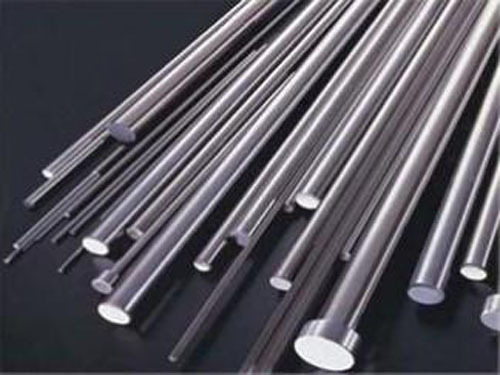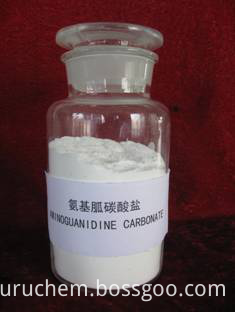
This year, China's steel industry has ushered in the peak year of export, and the export volume of steel products and export growth have reached historical highs. Steel companies have increased overseas M&A investment. Baosteel Group and Hebei Iron & Steel Group have accelerated overseas investment and established industrial bases. At the 2014 (3rd) China Iron and Steel Technology Economic High-End Forum sponsored by the China Metal Society, many people in the industry stated that the industry merger and reorganization window has been opened, and a fair and reasonable market mechanism should be accelerated.
Exports hit a record high Since the beginning of this year, the economies of developed economies such as Europe, the United States and Japan have picked up, and the demand for the international steel market has recovered. Coupled with the lack of domestic demand, steel companies have generally increased their export intensity. Both export volume and growth rate have reached historical highs.
Data show that from January to August China exported 56.38 million tons of steel, an increase of 34.3%; 9.46 million tons of imported steel, an increase of 4.4%; equivalent to 49.72 million tons of crude steel net exports, an increase of 42.7%. According to industry sources, this level has reached a record high.
In terms of prices, the average price of steel exports from January to August was US$795.3/ton, a year-on-year decrease of 7.5%. The average price of steel imports was 1249.9 US dollars/ton, an increase of 3.5% year-on-year. “There is a question of price changes for steel exports,†said Qu Xiuli, deputy secretary-general of the China Iron and Steel Association.
Due to the substantial increase in steel exports and related international trade frictions, many countries have adopted trade protection policies such as anti-dumping and countervailing duties. Qu Xiuli predicts that exports will continue to grow in the second half of the year, but it is difficult to maintain high growth in the first half of the year, and the growth rate will decline. "Iron and steel enterprises must optimize the structure of export products and regional distribution, increase the added value of export products, reduce trade frictions, and truly increase the ability to participate in international markets," said Qu Xiuli.
Not only has steel exports increased significantly, but steel companies are also increasing their overseas presence. In May of this year, Baosteel Resources International, a subsidiary of Baosteel Group, announced that it plans to expand its stake in Aquila to 85% through acquisitions. Aquila is a listed mineral resource exploration and development company in Australia. Major mine assets include coal in the Bowen Basin in Queensland, Australia, iron ore in the Pilbara region in Western Australia and manganese in South Africa.
“This step has won.†Chairman Xu Lejiang of Baosteel Group described the above investment. Xu Lejiang said that after increasing its shareholding, it will need a larger investment in the future. However, from the results of this round of overseas investment, the competitiveness of each ton of ore is already comparable to that of FMG.
Hebei Iron and Steel Group recently announced cooperation with the South African government to create an overseas industrial base that integrates resource development, international logistics, and steel industry. "The next step is that the Group is also preparing to acquire Deco shares, from 10% of the shares to 51% to 52%," said Peng Zhaofeng, general manager of Hebei Iron and Steel Group. As the world's largest independent steel trader, Deco also has a sales network in South Africa.
Xu Lejiang pointed out that this year is the peak year for the steel industry's exports. Developing regions such as the Middle East, Africa, Southeast Asia, and Eastern Europe will be the major regions for the development of the Chinese steel industry in the future. Although going out to face the risks of language, culture and other aspects, but China's steel going out is the trend of the times.
Reaching the peak of mergers and reorganizations At present, the domestic steel market is still deep in the doldrums. Resolving overcapacity, promoting mergers and reorganizations, and accelerating transformation and upgrading have always been the “prescriptions†for the development of the industry. A number of industry insiders stated that the time window for industry mergers and reorganizations is currently ushered in, and that a fair and reasonable market mechanism needs to be accelerated in the future.
“It is imperative for the steel industry to reduce restructuring and shut down low-efficiency branch factories and non-core businesses.†The chairman of the China Metal Society said that the Chinese steel industry has added more than 700 million tons of new production capacity within 10 years, but Investment debt has made financial costs too high, and the steel industry has become the industry with the worst economic performance in industries with overcapacity.
Earlier this year, the State Council issued the "Opinions on Further Optimizing the Merger and Reorganization of Market Environment". Feng Fei, director of the Industrial Policy Department of the Ministry of Industry and Information Technology, said that the overall idea of ​​the policy is to create an optimized market environment, mainly solving the four problems in the merger and reorganization process: tax, financial means, land, and staff placement.
“At present, it has entered the steel merger and reorganization window period and is experiencing a new round of mergers and reorganizations.†Feng Fei said that the Ministry of Industry and Information Technology is stepping up the implementation of the above-mentioned documents and hopes to implement various policies this year to create a good market environment for corporate mergers and reorganizations. .
As for the trend of industry mergers and reorganizations, many steel companies also expressed their support and urged the government to accelerate the establishment of a fair and reasonable market environment. Xu Lejiang said that if there is no fair market environment, companies will face great pressure after mergers and reorganizations. “At present, there is a big gap between state-owned enterprises, private enterprises, large-scale enterprises, and small enterprises in terms of tax revenue per ton of steel. Whoever comes from the perspective of taxation or environmental protection? What should we do if we violate the law? These issues need to be solved and the government should play a better role. The role." Xu Lejiang bluntly.
Xu Lejiang also stated that technological innovation is the basis for the development of steel enterprises, and management models and business model innovations are the guarantee for the transformation of steel enterprises. “The time has come for big data and intelligence. Steel companies must not only improve quality, control costs, but also follow the times and make breakthroughs in data and intelligence.â€
It is similar with intermediate for usage. Although it is not main content, it is very important for the finished products. Auxiliary Agent could improve the effects of finished product, and spread their usage in different fields.

Chemical Auxiliary Agent
Chemical Auxiliary Agent,Textile Auxiliaries,Auxiliary Agent For Alloying,Calcium Carbide
NINGXIA PURU CHEMICAL CO., LTD , https://www.nxpuruchem.com